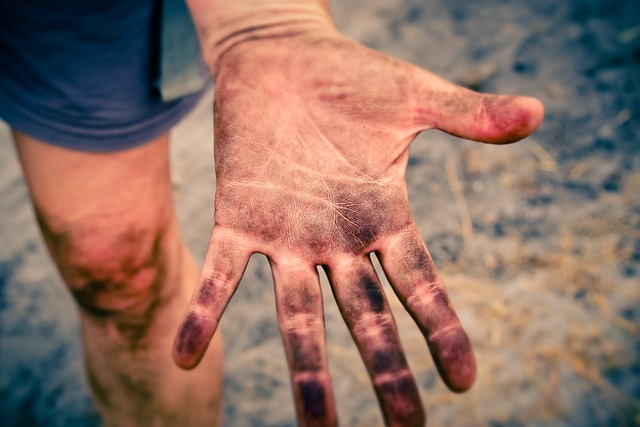Skin tags, common growths in friction areas, have various causes. Birmingham offers multiple removal options, from quick cryotherapy and laser treatments to surgical excision. Dermatologists recommend excision for definitive removal with proper healing. Non-surgical methods like lasers target blood vessels, causing tags to shrink naturally. Aftercare is essential for optimal healing; preventing reoccurrence involves hygiene, exfoliation, hydration, and specific Birmingham Tag Removal treatments.
Looking for effective skin tag removal in Birmingham? Skin tags, those small, harmless growths on the skin, can be unsightly and bothersome. Understanding their causes and types is the first step towards choosing the best removal method. From surgical excision to non-surgical options like laser treatments, this guide explores top Birmingham tag removal techniques. Learn about aftercare and prevention tips too, ensuring you make an informed decision for smooth, tag-free skin.
- Understanding Skin Tags: Causes and Types
- Common Methods for Removal in Birmingham
- Surgical Excision: A Detailed Look
- Non-Surgical Options: Laser Treatments and More
- Aftercare and Prevention Tips
Understanding Skin Tags: Causes and Types
Skin tags, also known as acrochordons, are small, soft skin growths that typically appear in areas where skin rubs against itself, such as the neck, armpits, and groin. They are usually harmless and often go unnoticed, but some people may find them unsightly or uncomfortable. Understanding their causes is essential when considering Birmingham Tag Removal options.
There are various types of skin tags, with the most common being acral, which can develop anywhere on the body. They are generally flesh-colored or slightly darker and can vary in size from a few millimeters to a couple of centimeters. Skin tags often form due to friction, hormonal changes, obesity, or certain genetic predispositions. In some cases, they may also be associated with conditions like diabetes or weight gain during pregnancy.
Common Methods for Removal in Birmingham
In Birmingham, several common methods are employed for skin tag removal, each with its own level of effectiveness and patient preference. One popular approach is cryotherapy, where a liquid nitrogen spray is used to freeze and destroy the tags. This quick and relatively painless procedure is suitable for many, though it may not be effective on larger or more persistent tags. Laser treatments are another common option, targeting the skin tags with concentrated light to burn them off. This method is often sought after for its precision but can be costlier.
Surgical excision is a more invasive option, involving a small procedure where the tag is cut away. It offers definitive removal but carries a higher risk of scarring and may require local anaesthesia. Over-the-counter methods are also available, employing ingredients like salicylic acid or duct tape to remove tags gradually. These are often preferred for smaller, less sensitive tags but may take more time and patience. Birmingham Tag Removal options cater to diverse needs, ensuring individuals can find a suitable solution based on their comfort level and budget.
Surgical Excision: A Detailed Look
Surgical excision, often recommended by dermatologists for effective skin tag removal in Birmingham, involves a precise and targeted approach. During this procedure, a skilled physician uses sterile surgical tools to carefully cut out the skin tag. The area is then carefully stitched together to promote healing. This method is considered safe and effective, especially for larger or more stubborn tags.
The advantage of surgical excision lies in its permanent nature—once the skin tag is removed, it’s gone for good. However, as with any surgical procedure, there’s a brief recovery period. Swelling, redness, and mild discomfort are common post-operative symptoms. Your healthcare provider will offer guidance on managing these side effects to ensure a smooth healing process.
Non-Surgical Options: Laser Treatments and More
Non-surgical options like laser treatments offer a modern and effective approach to skin tag removal in Birmingham Tag Removal. These procedures are typically quick, minimally invasive, and provide long-lasting results. Laser technology targets the blood vessels within the skin tags, causing them to shrink and fall off naturally over time. The advantage lies in its precision, allowing for targeted treatment without damaging surrounding healthy skin.
Other non-surgical methods include cryotherapy (freezing) and lancing. Cryotherapy involves freezing the skin tags with liquid nitrogen, which destroys the abnormal cells. Lancing, on the other hand, involves puncturing the skin tag with a sterile needle to remove it. These alternatives are often preferred for smaller or fewer skin tags, offering quick relief without extensive recovery.
Aftercare and Prevention Tips
After getting skin tags removed, proper aftercare is essential for optimal healing and to prevent reoccurrence. Keep the treated area clean and dry; gently wash with a mild soap and water, and pat dry instead of rubbing. Avoid exposing the skin to direct sunlight or extreme temperatures for several days post-removal, as this can cause further irritation. You may experience some minor discomfort or itching during the healing process, but over-the-counter pain relievers can help manage these symptoms.
To prevent future skin tags, maintain good hygiene practices and regularly remove dead skin cells with a gentle exfoliator. Stay hydrated by drinking plenty of water throughout the day, as hydration supports overall skin health. Additionally, Birmingham Tag Removal methods like cryotherapy or surgical excision offer long-lasting solutions, so consult a professional for persistent or unsightly skin tags to discuss the most suitable treatment options.
Getting rid of skin tags in Birmingham has various effective options, from surgical excision to non-surgical laser treatments. Understanding the causes and types is key to choosing the best Birmingham tag removal method for you. Remember to consult a professional for safe and successful results, and always follow aftercare advice to prevent regrowth.
